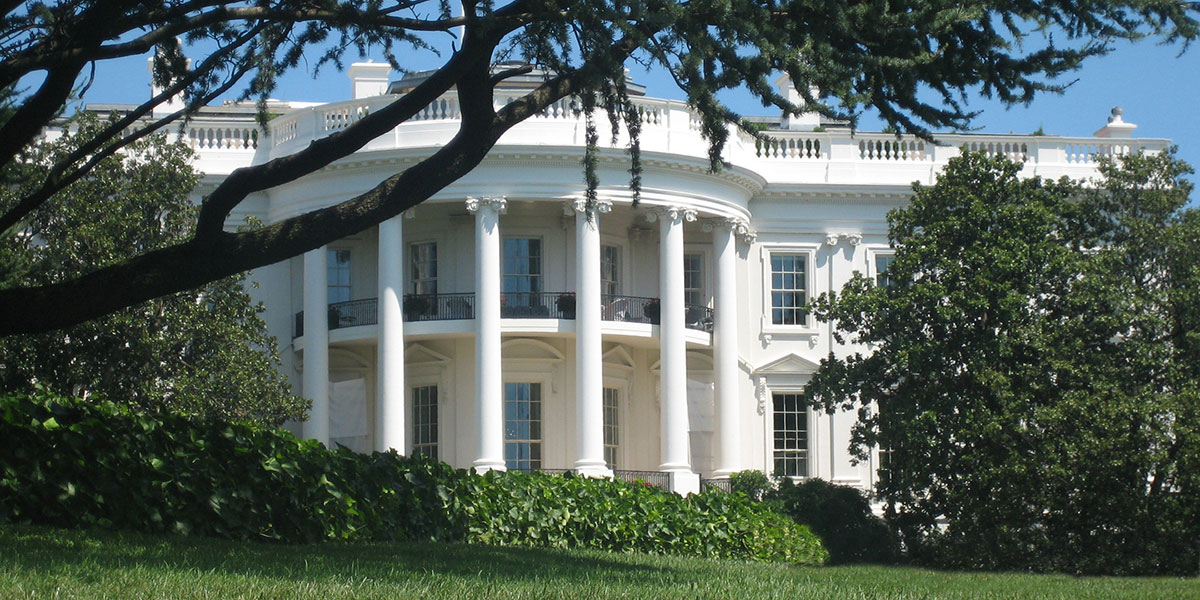Since I have become an adult and began immersing myself in politics, I have heard many comments from people who do not have opinions or simply choose not to vote because of their lack of knowledge in political candidates and topics. Thankfully due to our technologically advanced world, we are able to watch televised debates to better shape our opinions, educate Americans to prepare for elections and proudly cease excuses of political ignorance.

Presidential debates are a storied and revered event during any campaign season, and whether we are in the middle of a pandemic or not, candidates should never avoid them, and we should never avoid watching them. Photo by C. Allin Means
Unfortunately, in the world we live in today with social media, texting and emails, we have the opportunity to correct ourselves and perfect everything we say before anyone else sees it. And excuse me for considering this, but I can’t help but think that individuals in politics and leadership positions use these tools to their advantage too. This can be positive and negative because it can protect organizations, businesses, leaders and reputations, but this can be harmful because the final result may end up not including any of the same words and context as originally formed by the source, which can be misleading. While tweets and other social media messages are strategically filtered, edited and managed, public debates are among the few occurrences where the answers aren’t tainted or twisted. An article by CNN comparing presidential debates to job interviews points out how a person can seem exceptional, knowledgeable and experienced on paper, but it is during the face-to-face interview when responses are coming straight from the heart. Watching a debate doesn’t have to be the deciding factor for one’s choice of voting, but it can clarify many things that simply cannot be done by reading something on paper or online. According to a 2016 report from The Annenberg Public Policy Center of the University of Pennsylvania, the number of participating households watching debates has fallen nearly 20 percent from the first debate in 1960 to the first debate in 2012. This study also showed that individuals between the ages of 18 and 34 consider watching presidential debates to be the most helpful when deciding how to vote, with the second-highest being watching interviews or seeing the candidate in person. Though we have all been taught not to believe everything we see on the internet, many of us are still guilty of doing just that, especially during election season. After all, in our world today it is incredibly challenging and time-consuming to keep up to date on every single issue and fact check each source and article we see. There is so much information coming at the average adult every day that we become overwhelmed and often forget to pay attention to the important topics. This filter the Gen Z generation is growing up in is skewing their view of politics, opinions, expectations, outward appearance, definition of success and everyday life. President Donald Trump declared Thursday, Oct. 8, he will not attend the next presidential debate, scheduled for Thursday, Oct. 15, after the Commission on Presidential Debates announced the Town Hall-style meeting will be held virtually. If Trump continually tests negative for the virus up until Oct. 13 or 14, there should be no problem with holding the debate in person by taking the proper precautions of wearing masks, social distancing and installing protective shields where necessary. But at the same time, Trump should commit to this second of three debates before the Nov. 3 election whether they end up going live or going virtual. The stakes are too high to play politics over the format. After watching the first 2020 presidential debate between President Trump and Vice President Biden on Sept. 23, and also the only vice presidential debate on Oct. 7, I was reminded of current issues and potential issues that are relevant to this election that I forgot about simply by the busyness of my everyday life. I also noticed a few questions that were left unanswered by both candidates, which reminded me to do my homework on such topics and tune in to debate No. 2. At the end of the day, I believe you can’t over-educate yourself about an issue or a candidate during an election. As Sir Francis Bacon used to say, “knowledge is power.” _________________________________________________________________ Watching a debate can help to clarify and confirm one’s decisions on a candidate or issue without the external noise of other’s opinions creeping in to steer yours in one direction or another. I do not by any means consider myself an expert in politics but I do know that I need to educate myself and exercise my right to vote. Otherwise I don’t have the same right to complain and give my opinion if I’m not trying to make a change in my nation in the first place. As an adult and an American, I believe I have a responsibility to make this nation a better place for the present and the future, and one place that begins is by watching the presidential debates.
Whether it Goes Live or Virtual,
Trump Should not Duck Next Debate